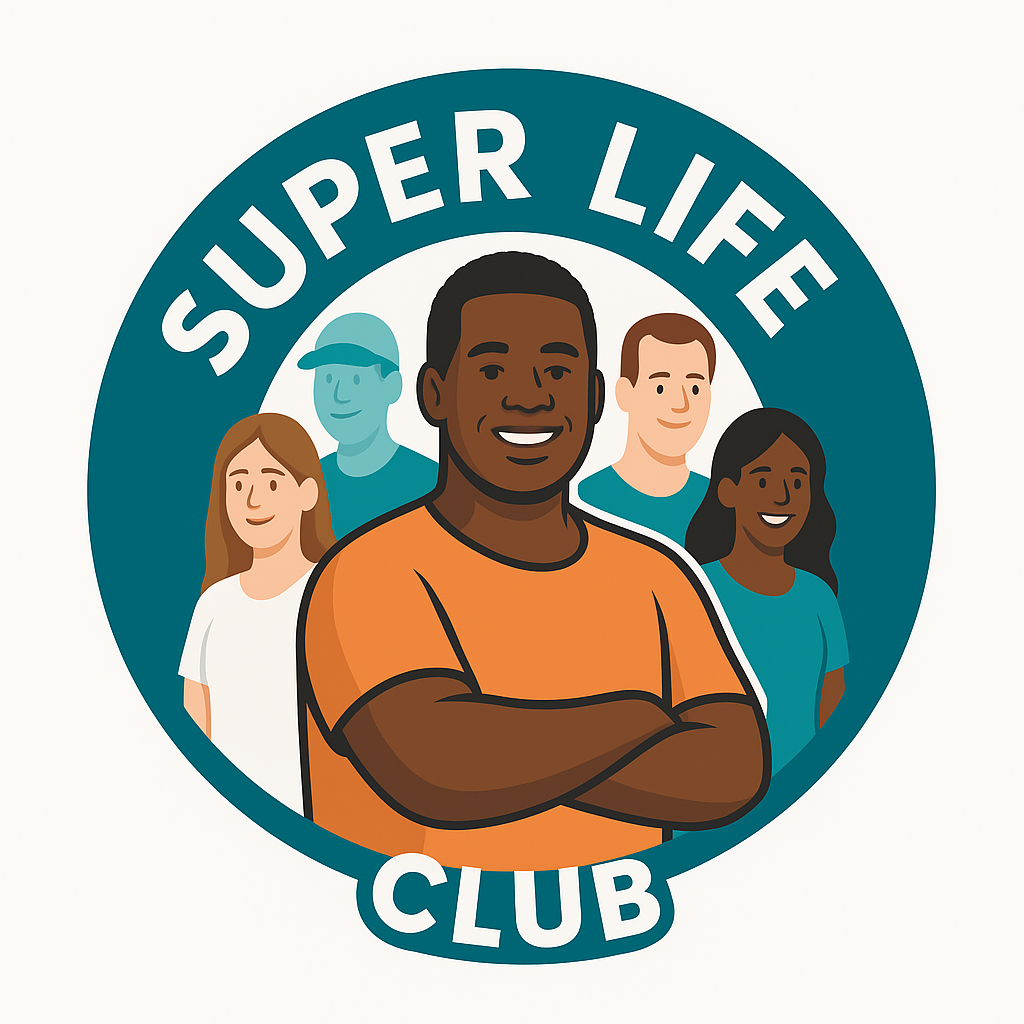The year is 2005. I just got a bad report from my Dr. I am 40 pounds overweight. B12 is apart of my all star vitamin arsenal. B12 has not been clinically proven to aid in weight loss. But I believe it helped me indirectly to manage my weight through better workouts after long days. Losing those 35 pounds in two months!
Vitamin B12, also known as cobalamin if you want to get technical, is something I always come back to for my own health routine. I’ve noticed real changes in my life by making sure I get enough B12, and after doing plenty of research (and chatting with my doctor), I’m glad to share what makes it truly special. In my research here is what surprised me.

- Supports nerve health and may reduce neuropathy (a factor in erectile dysfunction)
- Aids serotonin production, which promotes better sleep
- Helps manage stress and anxiety
- Supports a balanced mood
- Plays a role in pain perception
- Supports muscle strength and function
- Deficiency may contribute to vision problems
Vitamin B12 helps with:
Here’s a closer look at the top benefits of B12 vitamin that stand out to me and that I’ve felt myself.

Why B12 Vitamin Matters
B12 is a water-soluble vitamin that plays a role in countless functions in the body. It’s key for making red blood cells, supporting nerve activity, lifting your energy, producing neurotransmitters, and even keeping your mood in check. People who eat animal products usually get enough from their diet, but some groups, including vegetarians, older adults, and folks with absorption issues, often need a little extra help.
Why I Use B12 Every Day
I have been using vitamin B12 virtually every day for the last 15 years. It really helps me to get a great start to the day without harmful energy drinks, sodas, sugary snacks, and too much caffeine. All of which can have negative health effects My favorite B12 vitamin is from Isotonix. It comes in a liquid form that helps the body to absorb it. I do not go without a good B12 vitamin!
After being diagnosed with a health condition. In 2005 I lost 35 pounds in about two months by eating a sensible diet and working out a whole lot. This meant getting up at 7 am in the morning and being to work at 9. Then getting off work at 5 and working out for about a hour and half. I used this B12 vitamin.
Longer and stronger workouts are one big reason why I love B12 vitamins. I had no problems getting my workouts in after a stressful and taxing day at work.
The Top 5 Benefits of B12 That I Love
When people talk about B12, they often mention energy, but there’s more to B12 than just a quick pick-me-up. These are the five benefits that make the most difference for me.
- It helps with getting a good night’s sleep. My sleep had always been on the rocky side: trouble nodding off, trouble staying asleep, plus that foggy feeling the next day. After adding B12 (on my doctor’s advice), my sleep patterns actually improved. B12 helps regulate levels of melatonin, the hormone that signals your body it’s time to sleep. Some research has linked low B12 to poor sleep quality and even insomnia. If you struggle with sleep like I do, making sure you’re topped off on B12 could help, especially if your sleep problems pair with fatigue.
- It’s great for my nerves and helps with neuropathy symptoms. Since I deal with neuropathy from time to time, I was excited to learn about B12’s impact on nerve health. B12 is needed for producing the myelin sheath, the protective coating around nerves. Not having enough B12 can show up as tingling, numbness, or burning in the hands and feet. Boosting my B12 with supplements (after a low test result) helped calm those weird nerve sensations. B12 also appears in discussions about erectile dysfunction, especially when there’s a nerve-related cause. While B12 isn’t a magic fix, it supports healthy nerve activity, which affects a lot of processes in the body.
- It gives me an extra boost of energy, especially on sluggish days. Feeling flat and tired is never fun, and B12 helps turn that around for me. This vitamin is part of the process your body uses to turn food into energy, and not having enough can make your body feel like it’s running on low battery. Since I started taking B12 regularly, I’ve noticed fewer midday crashes and a quicker reset after a draining week.
- It helps manage my stress, anxiety, and daily moods. Days where everything feels overwhelming are easier to manage when my brain’s chemical messengers are in sync. B12 is involved in producing dopamine and serotonin, two neurotransmitters that influence mood. I’m not saying it works the same for everyone, but I’ve personally felt more even-keeled after making B12 part of my stress management and daily mood routine.
- It keeps my red blood cells in top shape (and helps prevent deficiency problems). B12 is directly involved in the formation of red blood cells, which are the cells that carry oxygen around your body. Without enough B12, red blood cells become big and misshapen, making it harder for oxygen to reach tissues. That’s why a deficiency can leave people feeling weak, pale, or out of breath. Keeping B12 levels in the healthy range helps avoid that tired, washed-out feeling that can sneak up unexpectedly.
Why I Use B12 Every Day
I have been using vitamin B12 virtually every day for the last 15 years. It really helps me to get a great start to the day without harmful energy drinks, sodas, sugary snacks, and too much caffeine. All of which can have negative health effects My favorite B12 vitamin is from Isotonix. It comes in a liquid form that helps the body to absorb it. I do not go without a good B12 vitamin!
After being diagnosed with a health condition. In 2005 I lost 35 pounds in about two months by eating a sensible diet and working out a whole lot. This meant getting up at 7 am in the morning and being to work at 9. Then getting off work at 5 and working out for about a hour and half. I used this B12 vitamin.
Longer and stronger workouts are one big reason why I love B12 vitamins. I had no problems getting my workouts end after a stressful and taxing day at work.
Common Questions About B12
B12 always sparks plenty of questions, from how to take it, to what a deficiency really feels like, to chatting with your doctor about it. I’ve picked up some tips from my experience and conversations with health professionals.
Are Pills or Shots Better?
This comes up a lot. If your body is able to absorb B12, pills or sublingual tabs (which dissolve under your tongue) work great. Some people, like those with certain digestive problems or who’ve had weight loss surgery, don’t absorb B12 as well. In these cases, a doctor might suggest B12 shots, since they go right into the muscle and straight into the bloodstream. I found pills easy and effective, but folks with absorption problems could really benefit from shots.
What’s the Link Between B12 and Red Blood Cells?
B12 helps your bone marrow make healthy red blood cells. If you’re short on B12, red blood cells can’t form properly, which leads to megaloblastic anemia. That translates to less oxygen reaching your body’s tissues, causing weakness and fatigue that don’t really improve with extra rest. Fixing a B12 deficiency helps get red blood cells back to normal size and function, restoring your energy in the process.
How Does B12 Deficiency Happen?
Low B12 can sneak up and affect nearly every part of your body. It often happens from not eating enough foods with B12 (common in vegetarian or vegan diets), trouble absorbing it due to digestive issues, or conditions like pernicious anemia. Sometimes medicines, especially acid blockers, can interfere too. Blood tests are the surefire way to know where you stand, so check with your healthcare provider if you think you might be low.
Understanding Cobalamin (aka Vitamin B12)
Cobalamin is the scientific name for vitamin B12. It’s one of eight B vitamins, all of which help your body use energy from food. B12 stands out because your body can’t make it. You need to get it from food or supplements, and it plays a direct role in DNA creation, nerve performance, red blood cell formation, and mental wellness.
B12 and Nerve Function
B12 acts as a bodyguard for your nervous system. It’s involved in the creation and maintenance of the myelin sheath, which wraps around and protects nerves. Without enough B12, damage can set in slowly, with symptoms like difficulty walking, numbness, or muscle weakness. Addressing B12 deficiency early can help stop or even reverse these issues, so nerve symptoms are a big red flag for doctors to check your B12 levels.
B12’s Role in Neurotransmitter Production
Neurotransmitters like serotonin and dopamine help control mood, focus, and even pain perception. B12 is needed to make these chemical messengers, and when levels dip, things like low mood, anxiety, or “brain fog” can happen. Many people see mood improvements when an underlying B12 deficiency is corrected.
Foods Naturally High in B12
Most animal-based foods are solid sources of B12. Here are a few you can count on:
- Seafood, especially clams, sardines, and tuna
- Meat like beef and chicken
- Milk, cheese, and yogurt
- Eggs
- Fortified foods (such as breakfast cereals or plant milk)
If you follow a vegetarian or vegan diet, you may need B12fortified foods or a supplement to keep your levels healthy.
Top B12 Supplements Worth Checking Out
The B12 supplement aisle can feel overwhelming, so here are a few options I’ve used or read about:
- Nature Made Vitamin B12 – Easy to find, simple formula, usually in the form of cyanocobalamin.
- Jarrow Formulas Methyl B12 – Offers methylcobalamin, one of the more active forms in the body.
- Garden of Life MyKind Organics B12 Spray – Tasty spray, great for those who don’t enjoy pills.
- SOLGAR Vitamin B12 – Available in different doses and forms, and known for its high quality standards.
Always check for third party testing and talk with your doctor before making changes to your supplement routine.
How to Know If B12 Supplementation Makes Sense
B12 supplements work well for people with low dietary intake (like vegans and some vegetarians), absorption issues in digestion, certain chronic conditions, and older adults—as absorption naturally goes down with age. Signs that you might benefit from B12 include tiredness that doesn’t get better with sleep, numbness, balance trouble, mood swings, and pale skin, but only blood work can confirm it.
Questions to Ask Your Doctor About B12
- Could I be low in B12, and should I get a blood test?
- What kind of B12 supplement (pill, sublingual, or shot) is right for me?
- How much B12 do I need daily?
- Are there any medications I take that might be interfering with B12 absorption?
- How quickly should I expect to feel a difference if I start supplementation?
Getting these questions answered helps you understand what your body needs, how to supplement correctly, and what results to watch for.
B12 shows up in so many aspects of your overall health, from energy to sleep and mood. Staying on top of your B12 status makes a real difference, especially for anyone juggling a busy life, sleep struggles, and low-energy days. Working with your doctor is a smart move if you suspect you might be running low. Just a few small changes can bring some pretty noticeable benefits.



Leave a Reply